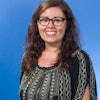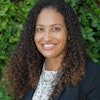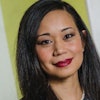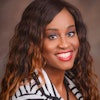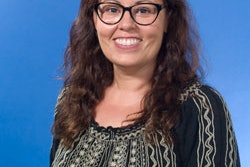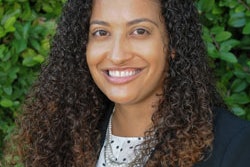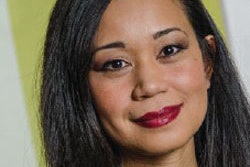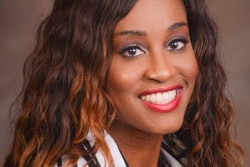Many a researcher has embarked upon a quest to discover a cure for a particular disease. Dr. Tyesha N. Burks — an assistant professor of biology at Bowie State University and an adjunct assistant professor at the Johns Hopkins University School of Medicine — is on a mission to remedy the problem that everyone faces even if they avoid or survive a particular disease: aging.
More specifically, Burks — an aging skeletal muscle biologist who was formally trained in human genetics and molecular biology — wants to find a way to help people who reach their twilight years to keep from becoming decrepit.
The condition is termed sarcopenia and it eventually affects all people, irrespective of whether they lead an active or sedentary lifestyle.
To counter the condition, Burks is in search of what she calls the “skeletal muscle fountain of youth.”
Her work has implications for the old and young.
“Everyone is going to get older and a lot of younger people dread being old because it doesn’t look appealing,” Burks says. “But the idea is to promote healthy aging. I would like to see more 90 year olds riding bikes and things like that.”
Burks discovered a passion to combat the ill effects of aging through a serendipitous path.
“When I went to graduate school, I thought I was going to study stem cell research and work on growing organs,” Burks recalls. “But then I joined a muscle laboratory and they were interested in Duchenne muscular dystrophy and I did muscular dystrophy work for a while but nothing was working out.
“So my boss was approached with an aging project and I took it on. Th is was about two years into my doctoral program. I stuck with it because, well, I usually tell people once you cure something like cancer, then what happens? Everyone fortunate enough to grow old is going to age.
“So I figured I’d reach more people through aging than a specific disease.” Dr. Alan J. Anderson, department chair and associate professor of chemistry at Bowie State University, says Burks’ work could help add to the current methods of mitigating the condition.
“The exact cause of sarcopenia is unknown, and the current therapeutic strategies focus on strength and aerobic exercise,” Anderson notes. “Since only 2 percent of older adults exercise on a regular basis, a more widespread therapeutic option is needed.”
Burks was one of the lead researchers in an initial effort to test the effi cacy of a blood pressure medication in benefi ting skeletal muscle disorders. She also conducted a preclinical trial to test the eff ects of the drug in older organisms in 2011.
The results of that study have since been used to initiate a clinical trial to test the eff ects in older humans through the Johns Hopkins Claude D. Pepper Older Americans Independence Center, Anderson notes.
“Viewing aging as a lifelong process, Dr. Burks’ current research aims to identify age-related changes that occur prior to the clinical onset of sarcopenia,” Anderson says. “Th e results of both studies will help to provide rationale for the further development and testing of drugs and other related agents to preserve skeletal muscle strength and function during aging.”
Anderson also credits Burks with going beyond helping students to be successful in the classroom and focusing on how they can build their personal brand and “understand that college is an audition for the real world.”
Anderson notes that Burks sought out the opportunity to work at an HBCU to impact the lives of African-American students.
Burks said her current position at Bowie State is “perfect” because she herself is a product of an HBCU.
“I’m fresh out of school, so I know what they’re going through,” Burks says. “Because of those experiences I can deliver instruction in a way that they’ll get.”
Title: Assistant Professor of Biology, Bowie State University, and Adjunct Assistant Professor, Johns Hopkins University School of Medicine
Tenured: No
Age:33
Career mentors: Dr. Kelly Mack, University of Maryland Eastern Shore; and Dr. Ronald Cohn, Centre for Genetic Medicine and The Hospital for Sick Children in Toronto
Words of wisdom/advice for new faculty members:
Never forget what it was like to be
a student and use that experience to guide your daily interactions with your students.
Be patient and don’t take mishaps personally.

